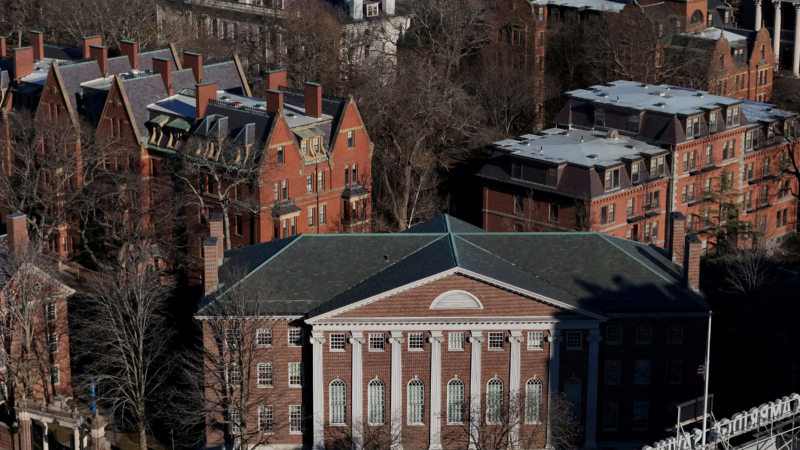Harvard rejects Trump administration’s demands for deep changes
Harvard University has rejected demands from the Trump administration that it eliminate its diversity, equity and inclusion (DEI) programs and make significant changes to its admissions and hiring practices, among other policy changes. At stake are about $9 billion in federal funding for the university.
“No government — regardless of which party is in power — should dictate what private universities can teach, whom they can admit and hire, and which areas of study and inquiry they can pursue,” Harvard President Alan Garber wrote in a letter to students and staff.
The response comes after the Trump administration sent Harvard a list of demands on April 11, including that the university eliminate DEI programs and race-based hiring, screen international students who are “supportive of terrorism or anti-Semitism” and ensure “viewpoint diversity” is reflected in its hiring practices.
“Although some of the demands outlined by the government are aimed at combating antisemitism, the majority represent direct governmental regulation of the ‘intellectual conditions’ at Harvard,” Garber said.
A White House spokesman, Harrison Fields, said in a statement that, “President Trump is working to Make Higher Education Great Again by ending unchecked anti-Semitism and ensuring federal taxpayer dollars do not fund Harvard’s support of dangerous racial discrimination or racially motivated violence.”
One of many universities under fire
The Trump administration has been targeting major universities for alleged violations of civil rights laws in an effort to eliminate DEI programs across the country. Following a year of pro-Palestinian protests on Columbia University’s campus, the administration cut $400 million in federal money for the institution. It also froze about $1 billion in funding for Cornell University and about $790 million for Northwestern University.
University leaders told NPR it has been a struggle to cope with demands from the federal government while trying to focus on the wellbeing of their students, and education.
In March, the federal government said its multi-agency Task Force to Combat Anti-Semitism was conducting a “comprehensive review” of $9 billion in federal contracts and “multi-year grant commitments” to Harvard.
“Harvard’s failure to protect students on campus from anti-Semitic discrimination – all while promoting divisive ideologies over free inquiry – has put its reputation in serious jeopardy,” wrote U.S. Secretary of Education Linda McMahon. “Harvard can right these wrongs,” she added, “and restore itself to a campus dedicated to academic excellence and truth-seeking, where all students feel safe on its campus.”
In a letter rejecting the government’s demands, Harvard’s lawyers outlined the steps the university has taken in the past 15 months to address antisemitism on its campus, including imposing “meaningful discipline for those who violate university policies” and hiring staff to support such programs.
Harvard’s lawyers wrote that the requested changes were in violation of the university’s First Amendment rights and exceeded the legal limits of the government’s authority to enforce civil rights laws
Baseline knowledge: Where tennis comes from and how the game has changed
Recent years have seen an upswing in people playing tennis (or at least dressing like it). But it's not just a phase. The sport — at least some version of it — has been around since medieval times.
In Texas, a major search effort is being led by the father of a flood victim
In Kerr County, Texas, Thad Heartfield is leading nearly 100 volunteers searching for flood victims. For him, this mission is personal. His son and three of his son's friends disappeared in the flood.
After quitting antidepressants, some people suffer surprising, lingering symptoms
The symptoms can include nerve pain, emotional numbness and sexual dysfunction and can last for years after stopping the drugs. Patients are pushing for recognition and more research.
Confused about where things stand with Trump’s tariffs? Here’s a handy primer
President Trump has announced — but postponed the effective date for — higher tariffs once again. Here's what to know about the latest on his tariff policy.
Canceled grants get the spotlight at a Capitol Hill ‘science fair’
On Tuesday, scientists held an event organized by House Democrats in which they stood in front of posters outlining their work — and the federal cuts that now threaten it.
How a broken nose kickstarted Diego Luna’s star-making run with the USMNT
The 21-year-old Real Salt Lake midfielder, with his bleached hair and dozens of tattoos, stands out on the soccer field. But it's his attitude that has won praise from his coach, teammates and fans.









